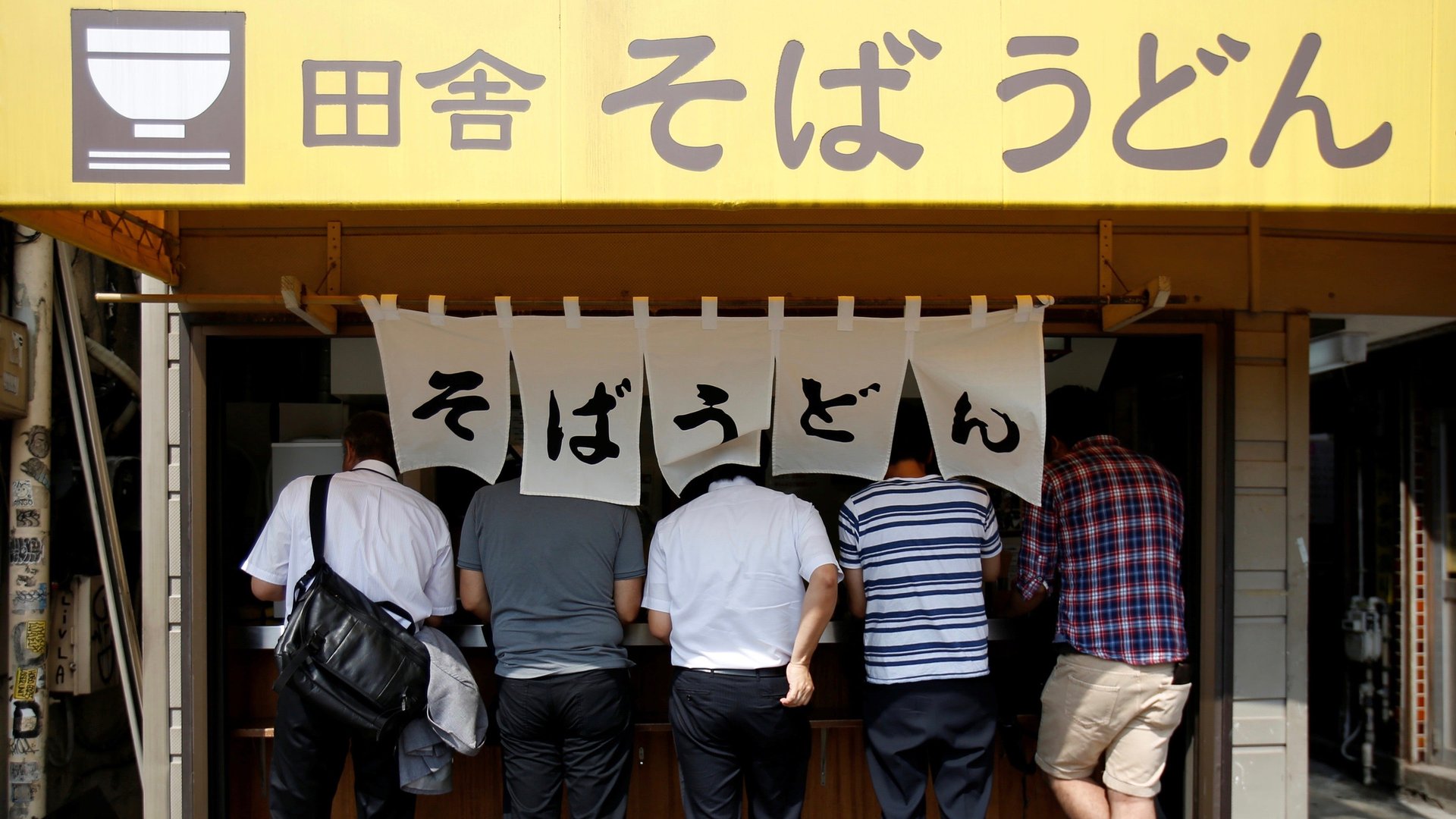Tokyo’s subway is offering free soba to flexible commuters
Crowded subways are not unique to Japan. In cities around the world, at rush hour, people are packed like sardines into trains, shoved up against strangers in an awkward intimacy that would be unthinkable in other contexts.


Crowded subways are not unique to Japan. In cities around the world, at rush hour, people are packed like sardines into trains, shoved up against strangers in an awkward intimacy that would be unthinkable in other contexts.
Now the Tokyo Metro is offering an unusual inducement to get commuters to travel at off-peak times—free soba noodles and tempura.
In an effort to reduce congestion on the Tozai line in Japan’s capital, one of Tokyo’s most crowded lines linking the city’s business district to the nearby suburb of Chiba, subway officials came up with a campaign that will benefit everyone. From Jan. 21 to Feb. 1, commuters who agree to show up at the subway ahead of rush hour in the mornings, and do so for 10 consecutive days, get vouchers for free buckwheat noodles served at local restaurants.
Initially, officials hoped to convince 2,000 people to change their commute times with free tempura—Japanese fried snacks. To lurean added 1,000 Tozai line riders to sign on, Tokyo Metro added soba, or buckwheat noodles, to the menu, AFP reports. That means the early birds are catching three worms: Tempura, soba, and rides that aren’t quite as tightly packed.
The plan has been extremely successful already, as Twitter updates from Tokyo Metro show. Today (Jan. 23) the company announced that on Jan. 22, nearly 7,000 people participated in the early-East Tozai line campaign. And every day, metro officials urge more people to join with a tweet advertising the Kakiage soba voucher that begins, “Let’s get buckwheat noodles together!” and ends “Let’s join the campaign tomorrow!”
Trains on this particular line operate at 199% capacity between the hours of 7:50 to 8:50 AM, according to Takeshi Yamashita, a Tokyo Metro spokesman. He says the crowding is safe but not at all comfortable, with passengers squeezed so tight they can’t move their limbs. “This is our most congested line. We are always trying to ease the rush hour congestion,” Yamashita tells AFP. “We hope this will encourage people to continue (taking early trains) to help ease the rush hour situation.”
The subway campaign is timed to coincide with another local initiative. The Tokyo Metropolitan Government over the same two-week period is encouraging commuting outside of peak hours, with nearly 1,000 local businesses are offering temporary flex time. Employees can work from home or come to work either earlier or later than usual, commuting during off hours.
These efforts are a kind of practice run ahead of the 2020 summer Olympics, which will be held in Tokyo. Commuter congestion and the logistics of getting around the crowded city are expected to get extremely complicated and officials are working on ways to ease city travel before the games.
Long-term fixes to jam-packed commutes aren’t easy or cheap. New Yorkers can attest to the fact that getting to work can be a hellish experience during rush hour. City officials have discussed “congestion pricing” (paywall), charging rush-hour drivers as a means to pay for the $40 billion in subway upgrades that are needed to relieve the pressure on the pubic transit system. A Jan. 12 report by the New Delhi-based think tank The Energy and Resources Institute (TERI) argues that Indian commuters should take up bike-riding and save the nation $265 billion instead of driving to work.
But maybe the Japanese are onto something with free food and flexible hours as a commuter inducement. Perhaps we should all be enjoying more delicious snacks and be more relaxed about when we get to the office. That would relieve not only acute commute congestion, but improve city dwellers’ mental health.